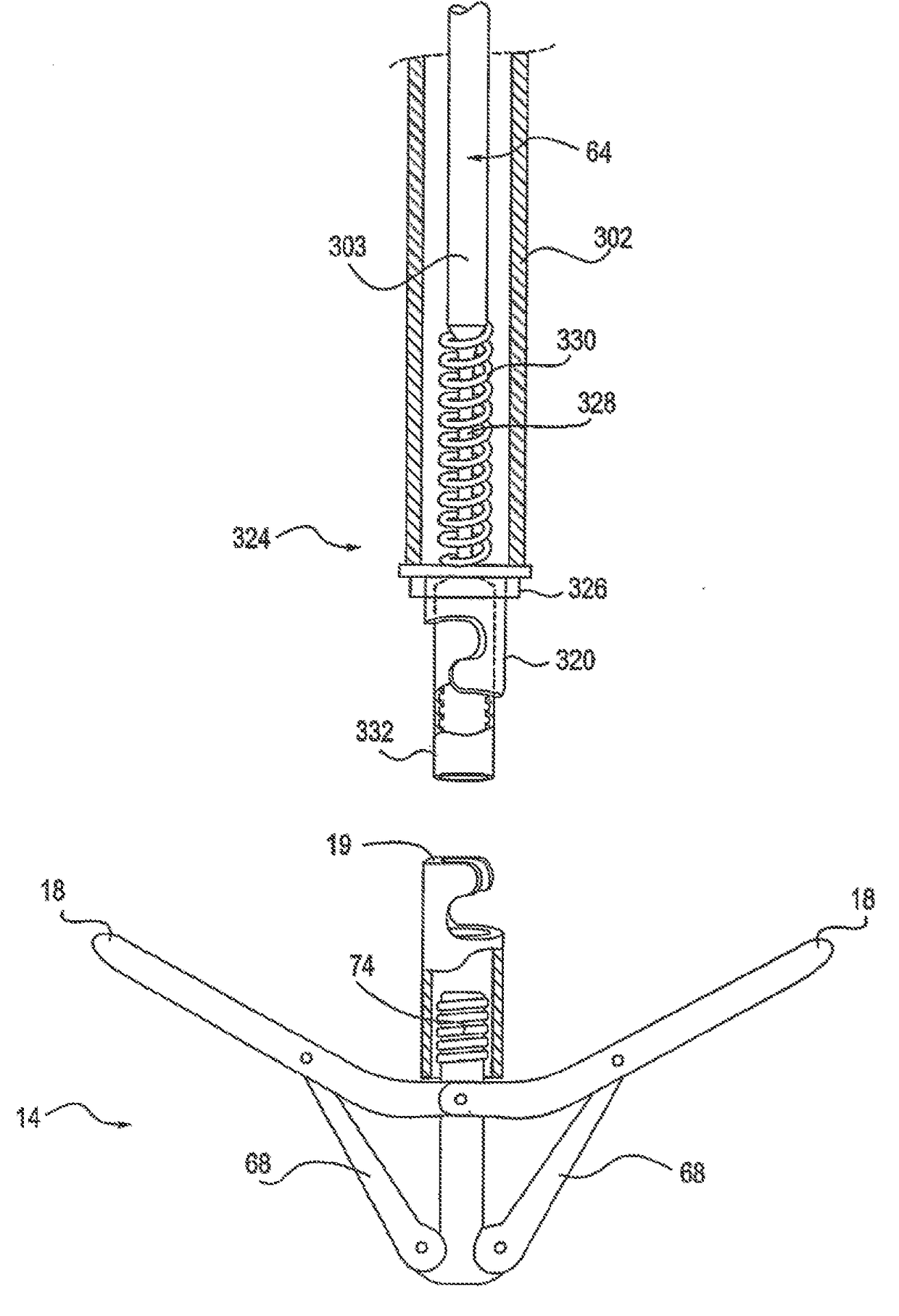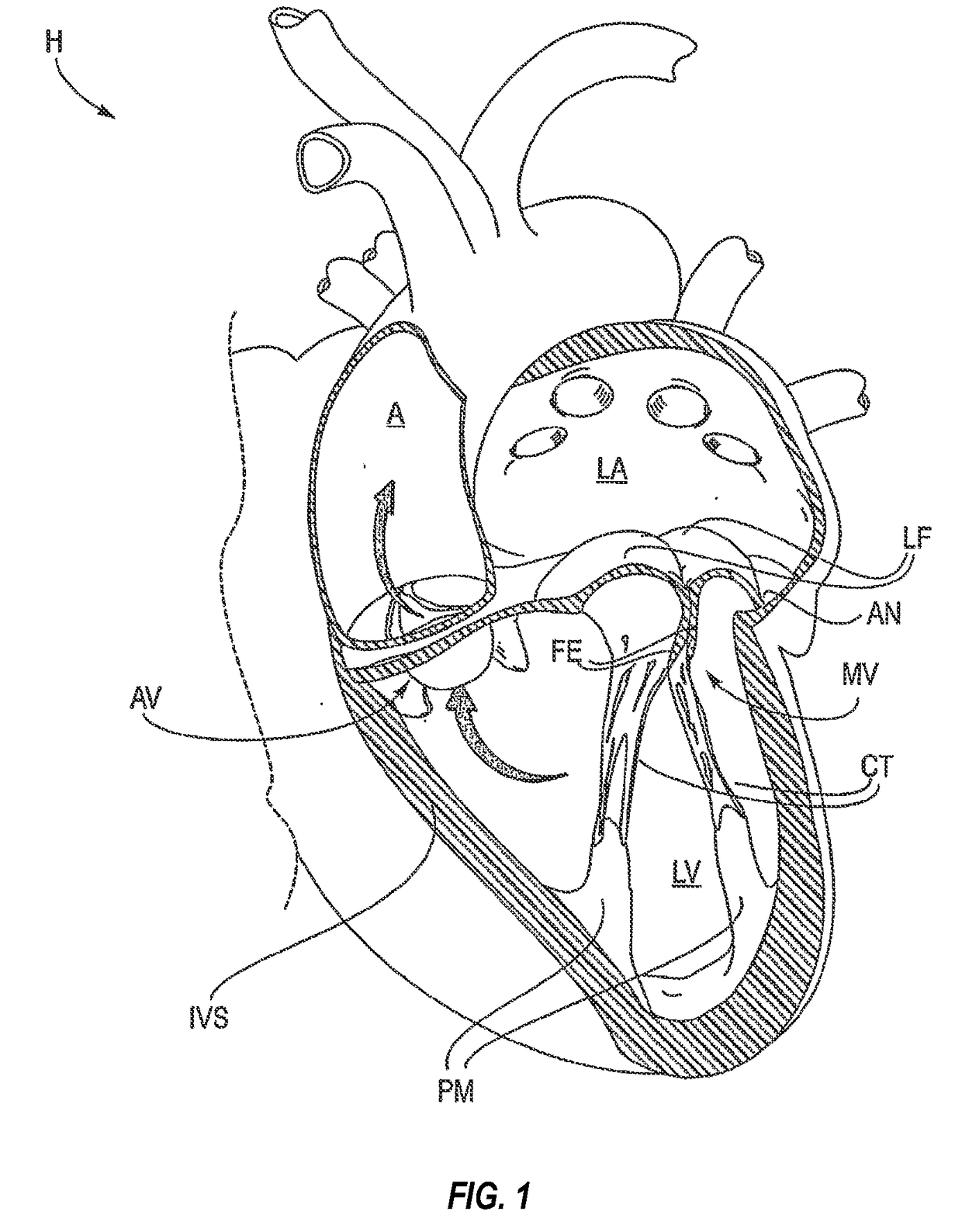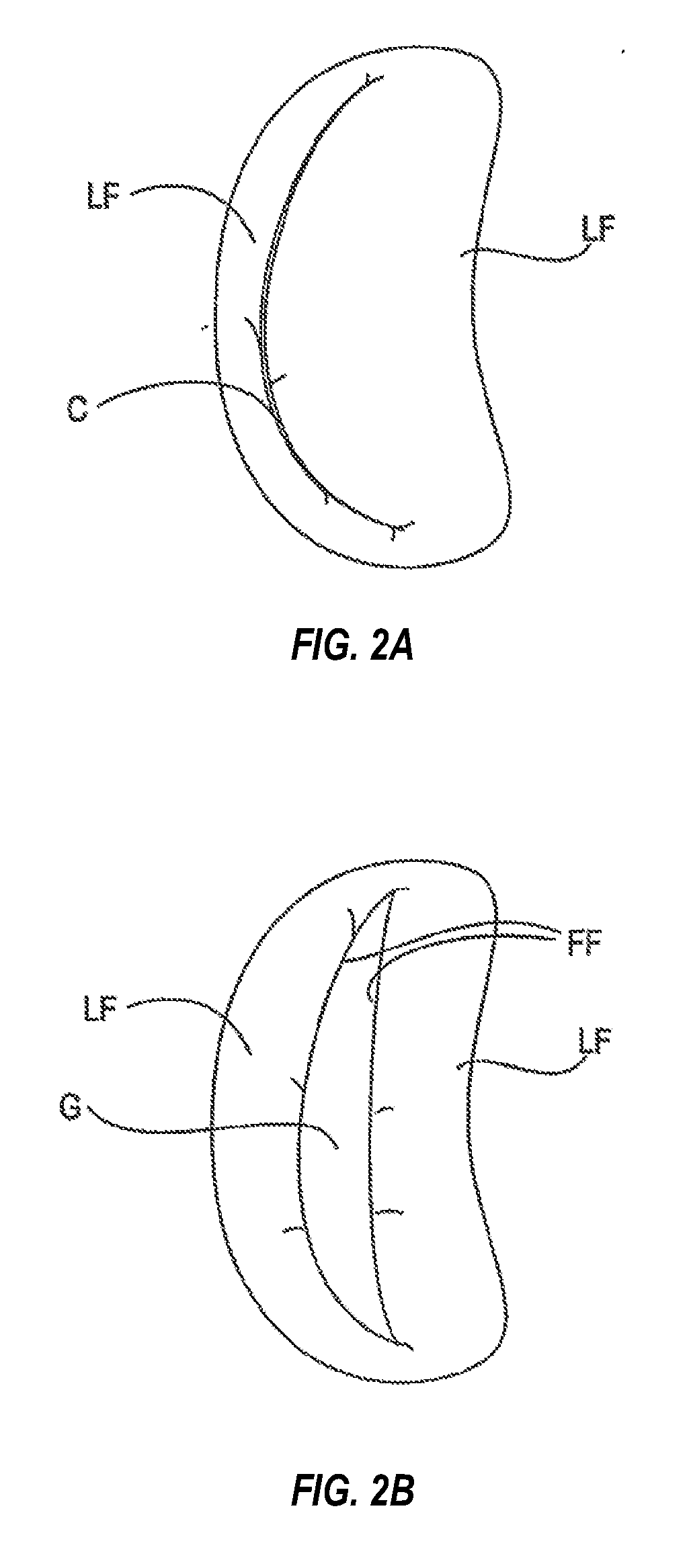Mitral valve fixation device removal devices and methods
a technology of fixation device and mitral valve, which is applied in the field of medical methods, devices and systems, can solve the problems that the mitral valve may not be suitable candidates for fixation device, may still exist or could arise with the function of the mitral valve or the heart generally, and may not be suitable candidates for the mitral valv
- Summary
- Abstract
- Description
- Claims
- Application Information
AI Technical Summary
Benefits of technology
Problems solved by technology
Method used
Image
Examples
Embodiment Construction
I. Introduction
A. Cardiac Physiology
[0059]The left ventricle (LV) of a normal heart H in systole is illustrated in FIG. 1. The left ventricle (LV) is contracting and blood flows outwardly through the tricuspid (aortic) valve (AV) in the direction of the arrows. Back flow of blood or “regurgitation” through the mitral valve (MV) is prevented since the mitral valve is configured as a “check valve” which prevents back flow when pressure in the left ventricle is higher than that in the left atrium (LA). The mitral valve (MV) comprises a pair of leaflets having free edges (FE) which meet evenly to close, as illustrated in FIG. 1. The opposite ends of the leaflets (LF) are attached to the surrounding heart structure along an annular region referred to as the annulus (AN). The free edges (FE) of the leaflets (LF) are secured to the lower portions of the left ventricle LV through chordae tendinae (CT) (referred to hereinafter as the chordae) which include a plurality of branching tendons se...
PUM
 Login to View More
Login to View More Abstract
Description
Claims
Application Information
 Login to View More
Login to View More - R&D
- Intellectual Property
- Life Sciences
- Materials
- Tech Scout
- Unparalleled Data Quality
- Higher Quality Content
- 60% Fewer Hallucinations
Browse by: Latest US Patents, China's latest patents, Technical Efficacy Thesaurus, Application Domain, Technology Topic, Popular Technical Reports.
© 2025 PatSnap. All rights reserved.Legal|Privacy policy|Modern Slavery Act Transparency Statement|Sitemap|About US| Contact US: help@patsnap.com



